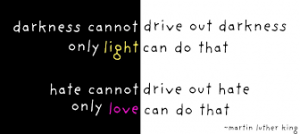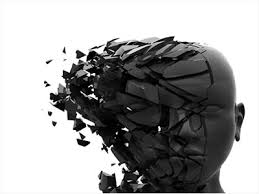This year, as you know, I decided to use dystopian literature as the vehicle to discuss making the world a kinder place. To use it as a backdrop upon which to show its opposite. We have read four novels while working on a long term project to counteract the Hate Map found on The Southern Poverty Law Center’s website. Our goal – to research groups working for social justice and peace, write articles about those groups, create an interactive map connected to the articles, and send it to The Southern Poverty Law Center to post beside the hate map.
The dilemma? To do the work, I had to ask my students to review the hate map articles to determine the content and format of their “love group” articles. Repeatedly, I have found myself cringing as I tell them to look at the hate map site for help.
Many of them had never heard of these groups and were horrified. As we come to the end of this project, I do not know yet, if it opened their eyes to the numerous groups working against the evil found on the hate map, or if I simply reinforced their belief that this is an unkind world. I know that they believe this because I gave a kindness pre-assessment for my professional goals this year. Their responses saddened me. I celebrate kindness in my classroom every day, but it is only a few minutes at a time.
I plan on asking them to reflect on this project when it is complete to see if they see the world as more evil or less. I feel as if I am holding my breathe waiting on their responses.




